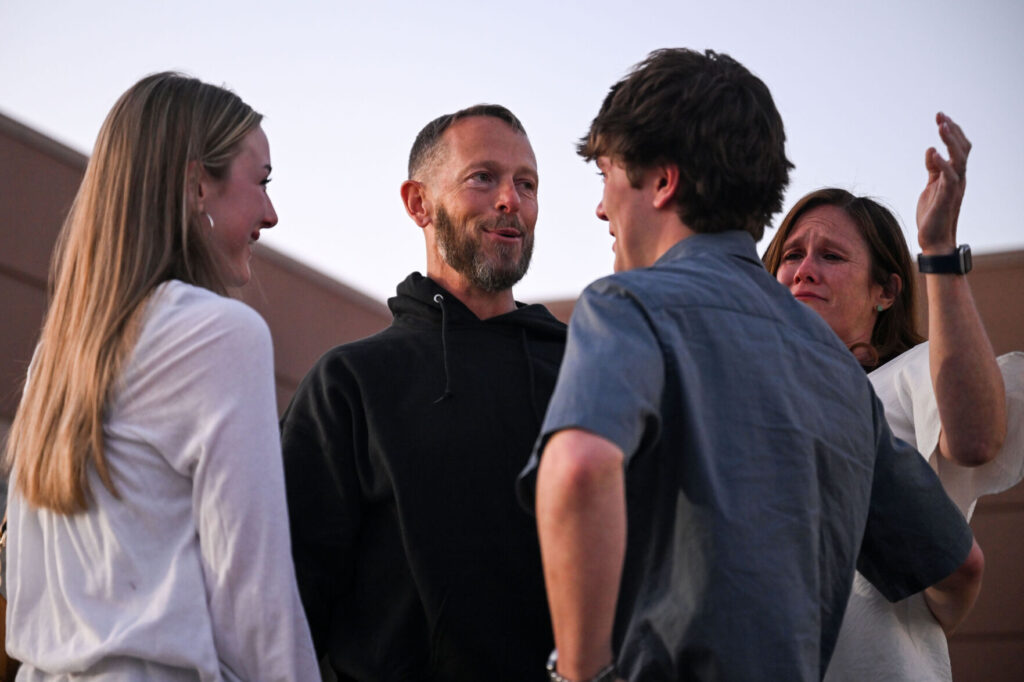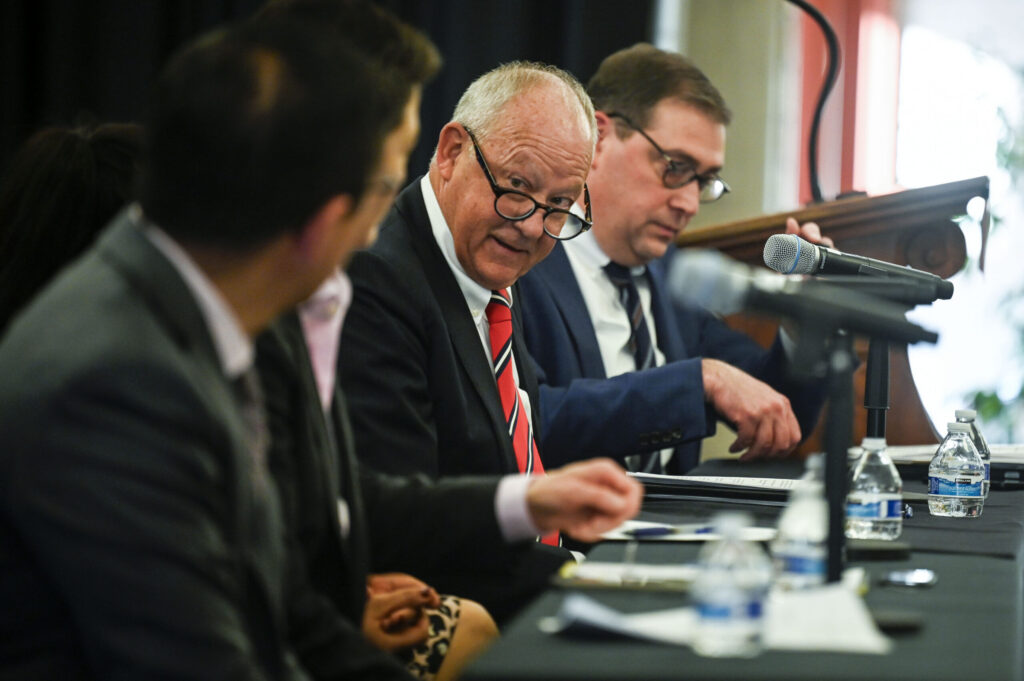Kroger’s mountain town pricing strategy under scrutiny in Colorado merger trial
On the second day of the trial over Colorado’s attempts to block the Kroger-Albertsons merger, the state’s legal team questioned Kroger’s executives on a pricing strategy implemented in several mountain towns across Colorado.
Kroger Senior Director of Pricing Andy Groff testified on Tuesday morning about a program called the “mountain no-comp zone” established in 2022 when inflation was surging nationwide. It was also called a “low-comp” zone.
The zone identified eight stores on the state’s Western Slope, where Kroger had less competition. It included City Market stores in Glenwood Springs, Aspen, Breckenridge, Newcastle, Granby, Carbondale, Eagle and El Jebel.
In all eight stores, Kroger raised prices under the program, Groff confirmed.
Kroger is the parent company of nearly 150 stores under the King Soopers and City Market brand within Colorado. The grocer is currently facing three lawsuits from state and federal officials in Colorado, Washington and in Oregon as it tries to merge with Safeway’s parent company Albertsons for $25 billion.
Colorado is arguing the merger would harm consumers and eliminate competition, especially in the state’s mountain towns. The state plans to demonstrate how Kroger would become a monopoly in parts of Colorado.
The grocers seek to show that not allowing the merger would only preserve the status quo of higher prices and that the deal would, in fact, lead to a better deal for customers.
Kroger plans to sell Safeway brand in Colorado to help secure merger with Albertsons
The attorney general’s office questioned Groff on the “mountain no-comp zone” program, part of the state’s strategy to show what happens in parts of the state where Kroger has less competition.
A Kroger spokesperson told The Denver Gazette in an email that “rather than raising prices across the entire division, we offset increased costs with the creation of these zones to minimize the impact of price changes for unaffected customers.”
Kroger had higher prices in the state’s western side of the mountain due to the rise in fuel costs and labor costs, Groff said in his testimony. Paying for trucks to go through the mountains is more expensive, he said, and the company was undergoing labor negotiations and expected wages to go up.
“Are you aware that the mountain no-comps stores are not unionized?” asked Assistant Attorney General Arthur Biller.
“No, all I’m aware of is that when I look at labor as a percentage of sales, the stores on the western side of the mountains have a higher percentage of labor cost as a percent of sales. That’s all I’m aware of,” Groff responded.
The zone was established to pass on rising costs by raising prices in select stores with less risk of losing sales volume from competition, Groff confirmed.
“And yes, we look for areas that had less competition, and we selected those stores for that reason,” he said, adding it didn’t mean those stores had no competition at all.
Biller pointed out the “no-comp stores” have no Safeway stores nearby, which Groff confirmed, and there are City Market stores in Vail and Gunnison with Safeway that also have high costs to operate but were not included in the zone.
The “no-comp” stores on the Western Slope saw revenues grow faster and yielded gross margins more than double of more competitive Kroger stores, Groff confirmed.
It was considered a successful program, Groff testified, because it raised prices without losing customers and covering Kroger’s rising costs.
Kroger also implemented a similar program in Washington, where it created a zone around Seattle to raise prices in the city’s stores rather than a whole divisions to cover higher labor costs required for frontline workers during the pandemic.
Kroger would get 14 stores in the state if the merger goes through. The rest of the 91 Albertsons stores would go to C&S Wholesale Grocers, which is also on trial over whether it can successfully operate within the state as a competitor.
Biller pointed out several of the Safeway stores Kroger would acquire, such as one in Leadville, Monte Vista and Walsenburg don’t have another grocer within 10 to 15 miles.
Groff said he doesn’t expect any more stores will be added to the Western Colorado mountain zone, where prices were raised to compensate for other stores.
“There’s other stores we could put into that zone if we wanted to,” Groff said. “So far, we have not added any stores to that zone since its creation.”










